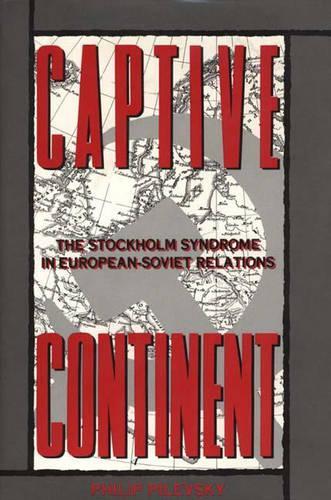
Captive Continent: The Stockholm Syndrome in European-Soviet Relations
(Hardback)
Publishing Details
Captive Continent: The Stockholm Syndrome in European-Soviet Relations
By (Author) Philip Pilevsky
Bloomsbury Publishing PLC
Praeger Publishers Inc
19th January 1989
United States
Classifications
Tertiary Education
Non Fiction
327.094
Physical Properties
Hardback
170
Description
A provocative contribution to the international relations literature, Captive Continent argues that there has been a shift in Western European sympathies in recent years. According to Pilevsky, this shift has taken the form of either nationalistic neutralism or a pro-Soviet position on many significant issues. Further, Pilevsky contends, Western Europe's new distrust of its ally, the U.S., and its seeming trust of its enemy, the USSR, is analogous to hostage behavior as characterized by the Stockholm Syndrome--which posits that the effects of fear on an individual or group will often lead to an identification with that which is feared. Pilevsky's discussion of the Stockholm Syndrome and its relevance to Europe proceeds along two parallel paths. First, he clearly delineates the syndrome and explores its bearing on the current situation in Europe--a situation in which nominal allies of the U.S. often seem more ready to side with the USSR in policy disputes. According to the author, Western Europe is, in a profoundly psychological way, a captive of the Soviet Union. In this relationship, based on fear and dependence, Western Europe comes increasingly to identify with its captor at the expense of the U.S. The second focus of the discussion is the identification of Russia's active participation in a strategy to make Europe hostage. As Pilevsky demonstrates, recent events support his contention that the Soviet Union not only benefits from the Stockholm Syndrome, but continues to take steps to foster the hostage-captor relationship. In his conclusion, Pilevsky suggests ways for the U.S. to more successfully deal with its allies and makes 10 recommendations for NATO.
Author Bio
PHILIP PILEVSKY, president and sole owner of Philips International, has distinguished himself as one of the most active real estate buyers and developers in New York. He is a guest lecturer at Columbia University and sits on the advisory board of Columbia's master of science program in real estate development.
